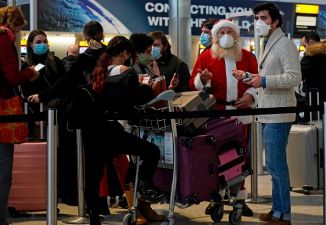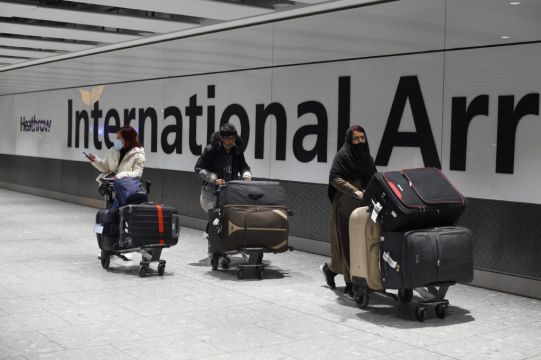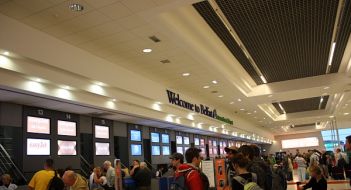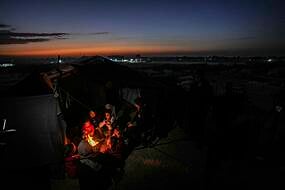Passengers arriving in England from high-risk coronavirus hotspots look set to be made to quarantine in hotels to limit the spread of new variants.
British prime minister Boris Johnson will discuss the proposals – designed to ensure people follow self-isolation rules – with senior ministers at the “Covid Operations” committee on Tuesday.
The UK's vaccines minister Nadhim Zahawi warned that the country needs to be “very careful” as new strains emerge, and said an announcement on the quarantine plans would be made later.
He told Sky News: “There will be an announcement on this issue later on today, so I can only say to you that it is the right thing to do, because I am the vaccines minister, that as we vaccinate more of the adult population, if there are new variants like the South African or the Brazilian variants, we need to be very careful.
“We acted on those very quickly and of course dealt with travel from those countries, and from Portugal and elsewhere, rapidly so it is important we continue to review our border policy and an announcement will be made when a decision has been taken.
“And of course the industry itself will be engaged with heavily, including (Health Secretary) Matt Hancock engaging with the industry to explain the decision making at health, as well as of course the business department with the Business Secretary.”
Despite reports suggesting it could take up to three weeks to implement the policy – partly due to the logistical challenge of arranging accommodation for thousands of arrivals – the head of a major hotel chain said they could mobilise “within 24 to 48 hours”.
Rob Paterson, chief executive of Best Western Great Britain, told BBC Breakfast: “Through our project with the NHS supporting discharge patients, we’ve got the protocols and the whole infection control management side of things taken care of…
“We could turn this around within 24 to 48 hours for an open hotel, and a bit longer for an unopened hotel.”
Various options for quarantining arrivals are said to be on the table, but UK government sources suggested that ministers may opt for a more limited system after aviation leaders warned that introducing tougher border rules would be “catastrophic” for the industry.
In a joint statement, the Airport Operators Association and Airlines UK insisted the country already has “some of the highest levels of restrictions in the world” and that introducing tougher rules would be “catastrophic”.
Reports have suggested that arrivals in England would have to cover the price of quarantining in hotels for 10 days, potentially setting them back more than £1,000.
The BBC said the requirement to isolate in a hotel would apply to arrivals from most of southern Africa and South America, as well as Portugal.
Direct flights to the UK from South Africa, Brazil and Portugal have already been suspended, but British residents have been permitted to return through indirect routes and then self-isolate at home.
Ireland
In Ireland, the Cabinet sub-committee approved a mandatory two-week quarantine for anyone arriving into the country without a negative PCR test.
Fines of €2,500 or a six-month prison sentence could also apply.
The same rules will apply for anyone coming from Brazil or South Africa.
Passengers will have to quarantine at State-chosen hotels — but will be able to leave if they get a negative PCR test after five days.
There will be increased Garda presence near ports and airports to question people as to whether their trips are essential, and they will be able to hand out increased fines.

The measures are all expected to be approved by Cabinet on Tuesday morning, but may take some time to implement.
Australia became one of the first countries to introduce mandatory hotel quarantine in March, while the practice is also observed in China, New Zealand, India, Singapore, the Philippines, Taiwan, Qatar and Thailand.







